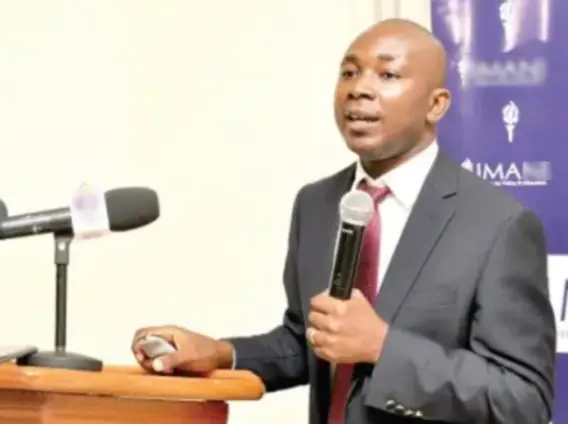Concerns have recently surged in Ghana regarding potential currency controls and their impact on both individuals and businesses. Amidst these anxieties, the Bank of Ghana (BoG) plays a crucial role in regulating foreign exchange, striving to maintain financial stability. In light of these concerns, the Bank of Ghana (BoG) has issued a statement assuring that Over-the-Counter (OTC) cash withdrawals in foreign currency from Foreign Exchange Accounts (FEA) and Foreign Currency Accounts (FCA) are permitted, according to their mandate under the Foreign Exchange Act, 2006 (Act 723). This article will explore the specifics of this announcement, providing context on the related regulations and highlighting important considerations for account holders and travelers regarding OTC Foreign Currency Withdrawals.
Understanding the BoG’s Stance on OTC Foreign Currency Withdrawals
The official statement from the Bank of Ghana clarifies that OTC cash withdrawals in FEA and FCA are indeed permissible. This assurance aligns with the Bank of Ghana’s established mandate under the Foreign Exchange Act, 2006 (Act 723), as well as associated notices. Furthermore, the statement confirms that the issuance of cheques and cheque books on FEA and FCA accounts will continue without interruption.
This clarification is significant as it addresses growing concerns about possible restrictions on access to foreign currency. It reinforces the rights of account holders to manage their funds and highlights the nature of FEA and FCA accounts. These accounts are typically held by individuals and businesses involved in international transactions. Maintaining the ability to conduct OTC Foreign Currency Withdrawals from these accounts is crucial for facilitating trade, investment, and other cross-border financial activities, thereby fostering confidence in Ghana’s banking system.
The Push for Restriction and Rationale
Prior to the BoG’s official statement, Isaac Adongo, a board member of the Central Bank, announced intentions to intensify restrictions on Over-the-Counter (OTC) withdrawals of US dollars from financial institutions. This announcement was framed as part of a broader effort to curb cedi depreciation. In an interview with Joy News Editor, Evans Mensah, on PM EXPRESS, Adongo stated: “The Central Bank’s role includes regulating the use of our legal tender. When you request dollars, we’ll provide cedis instead.”
This announcement highlights the delicate balancing act the Bank of Ghana faces. On one hand, restricting access to foreign currency could potentially help stabilize the cedi. However, completely halting OTC Foreign Currency Withdrawals from FEA/FCA accounts could disrupt legitimate business operations and erode confidence in the financial system. Therefore, allowing FEA/FCA withdrawals, while carefully managing overall forex availability, represents a compromise aimed at supporting the cedi without unduly hindering international transactions. The rationale aims to control speculative forex purchases that put pressure on the local currency.
BoG’s Caution: Forex Purchases for Travel
While clarifying the rules regarding FEA/FCA accounts, the Bank of Ghana also addressed forex purchases for travel. For individuals who do not hold FEA or FCA accounts, the purchase of foreign exchange for travel outside Ghana remains permissible, but is capped at US$10,000 or its equivalent per person per trip. This allowance is subject to specific documentation requirements, aligning with earlier notices issued by the Bank.
To ensure compliance with these regulations, individuals purchasing forex for travel must provide a valid passport, visa (if required), and a confirmed travel ticket. Adhering to the US$10,000 limit is also crucial. Failure to comply with these requirements could result in penalties, including the denial of the forex purchase or other sanctions. The Bank of Ghana emphasizes the importance of transparency and adherence to these rules to prevent misuse of foreign exchange and maintain the integrity of the system.
Conclusion
In summary, the Bank of Ghana has affirmed that OTC withdrawals from FEA/FCA accounts are permitted, providing clarity amidst concerns about potential restrictions. However, it’s important to remember that limitations and specific requirements exist for individuals without these accounts who are purchasing forex for travel purposes. The Bank of Ghana is committed to balancing financial stability with the need to facilitate legitimate foreign exchange transactions. Account holders should stay informed about any regulatory updates by regularly consulting the Bank of Ghana’s official website, and those seeking personalized advice should consult a qualified financial advisor. Being well-informed ensures adherence to the current guidelines for OTC Foreign Currency Withdrawals and forex purchases.
Image Source: MYJOYONLINE





















